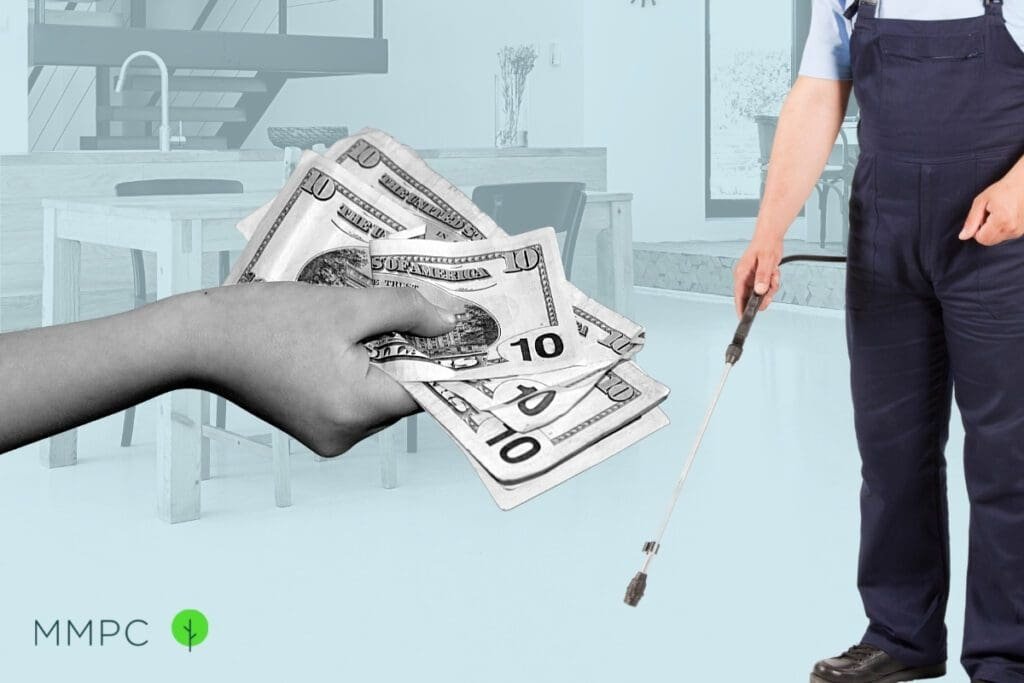
Are Landlords or Tenants Responsible for Keeping Your Building Pest-Free?
Between the landlord and tenant, who is responsible for pest control? Whose responsibility is it to prevent, monitor, and solve pest problems in your building?
The term “pest” means any unwanted insects or rodents. Examples of pests prevalent in New York City homes and apartments include mice, rats, cockroaches, bed bugs, flies, moths, beetles, ants, termites, mosquitos, wasps, spiders, ticks, centipedes, and more.
When it comes to dealing with pest control issues in New York City, the mutual rights and responsibilities of landlords and tenants can often cause confusion, headaches, and miscommunication.
What are the landlord’s responsibilities regarding pest control?
Title 27 – Chapter 2 of New York City’s Housing Maintenance Code states:
“An owner of a dwelling shall take reasonable measures to keep the premises free from pests[…] and shall expeditiously take reasonable measures to remediate such conditions and any underlying defects[…]” (§27–2017.1)
This means that it is the landlords responsibility to practice “Integrated Pest Management” measures like sealing cracks and fixing leaks.
This includes pest inspections and, when necessary, extermination.
Landlords are also responsible for inspecting units prior to the arrival of a new tenant and arranging and paying for pest control services if there is an infestation.
What are the tenant’s responsibilities regarding pest control?
While landlords are responsible for many aspects of pest control, tenants still have a role to play.
Tenants should keep their homes clean, keep food sealed, vacuum floors, and empty garbage and recycling regularly. They should keep their landlord informed if there are conditions that attract pests, such as cracks and holes in walls and floors and water leaks so that repairs can be done immediately.
If a pest problem arises due to a tenant’s “own wilful act, assistance, or negligence or that of any member of his family or household or his guests”, the tenant may be held liable for expenses related to pest extermination.
Tenants also have a responsibility to inform their landlord of any early signs of a pest infestation, as well as structural damage that could risk a pest infestation.
Who is responsible for bed bug inspections and treatment?
It is a landlord’s responsibility to handle the inspection and treatment of bed bugs.
If a landlord is informed by a tenant that there is a possible bed bug infestation, they should work with a local pest control company to schedule an inspection and determine the treatment options.
When it comes to bed bugs, New York City’s Department of Housing Preservation and Development (HPD) counts them as a Class B violation (hazardous), which landlords have 30 days to eliminate.
Are landlords required to call in licensed professionals, or can they use DIY methods?
According to the Environmental Conservation Law, “a person may only apply pesticides to the individual dwelling unit in which they reside, unless they are a certified commercial applicator.”
This means that landlords will need to find pest control professionals licensed by the New York State Department of Environmental Conservation (DEC) to use pesticides in a tenant’s space.
But as long as pesticides are not used, landlords aren’t required to hire a professional to address a infestation.
The New York Department of Health states that “pesticides should only be used as a last resort,” so a landlord may attempt to eliminate the pest problem in their own way—as long as it’s effective.
Many integrated pest management measures are preventative, such as sealing holes, fixing screening, and eliminating sources of food and water that allow pests to survive. These methods are perfectly acceptable for landlords to tackle themselves if they choose to, as long as they follow safe work practices.
How often should landlords perform pest inspections?
Local Law 55 of 2018 states that landlords are responsible for performing yearly inspections to ensure that tenants’ apartments are free of pests and mold.
Landlords are also responsible for performing pest inspections in vacant units before renting them out to new tenants. In New York, the average apartment lease lasts at least one year, so landlords can sometimes wait until tenants move out before conducting their annual inspection.
If the tenant stays in their unit longer than one year, the landlord must provide said tenant with reasonable notice of his or her right to enter the unit for the purpose of inspection.
If left unchecked, pest infestations can spread in apartment buildings so landlords should be vigilant to prevent a costly building-wide problem.
What can tenants do if their landlord refuses to address pest control issues?
According to 311’s information on Apartment Maintenance Complaints
“Before filing a complaint, you should try to resolve the issue with your landlord, managing agent, or superintendent. If you live in a co-op or condo, you should first report apartment maintenance issues to the owner, management company or board before filing a complaint[..]. “
If the landlord still refuses to properly address the pest issue, tenants can file a complaint with 311 and HPD will send an inspector to assess the complaint.
If HPD determines that there is in fact a pest infestation, they will send a notice to the landlord that they have either 90 days (non hazardous pests), 30 days (bed bugs), or 21 days (rodents and cockroaches) to correct the situation.
If the landlord still does nothing, they may be subject to fines or civil litigation.
What if I live in a co-op apartment building or own a condo?
People who own condominiums or co-ops are technically their own landlord. Being your own landlord means that you are responsible for eliminating pests on your own dime.
In an apartment with a housing board, the board is responsible for keeping the building’s common areas pest-free. Tenants should inform the housing board of any infestations so that the board can take steps to prevent the spread to other units.
